On April 6th, the charity initiative "Plastic Caps for the Future" will donate its 6th baby incubator to the neonatal ward of the hospital in the small town of Knezha after donating another five infant incubators to the hospitals in the towns of Cherven Bryag, Chirpan, Botevgrad, Nova Zagora, Troyan. On the next day, there will be events for collection of plastic bottle caps in Pleven, Veliko Tarnovo, Shumen, Vratsa, Pazardzhik and Varna, and on 13 April in Sofia and Plovdiv.
At the heart of the initiative are two people: Martina Yordanova and Lazar Radkov. Their encounter at a charity training turned out to be crucial for hundreds of prematurely born babies in Bulgaria. This was when they came up with the idea of collecting plastic caps to raise funds for purchasing of baby incubators to be donated to needy municipal hospitals. According to Lazar, funds are raised because many people get involved, and 70 tonnes of plastics have been recycled to date.
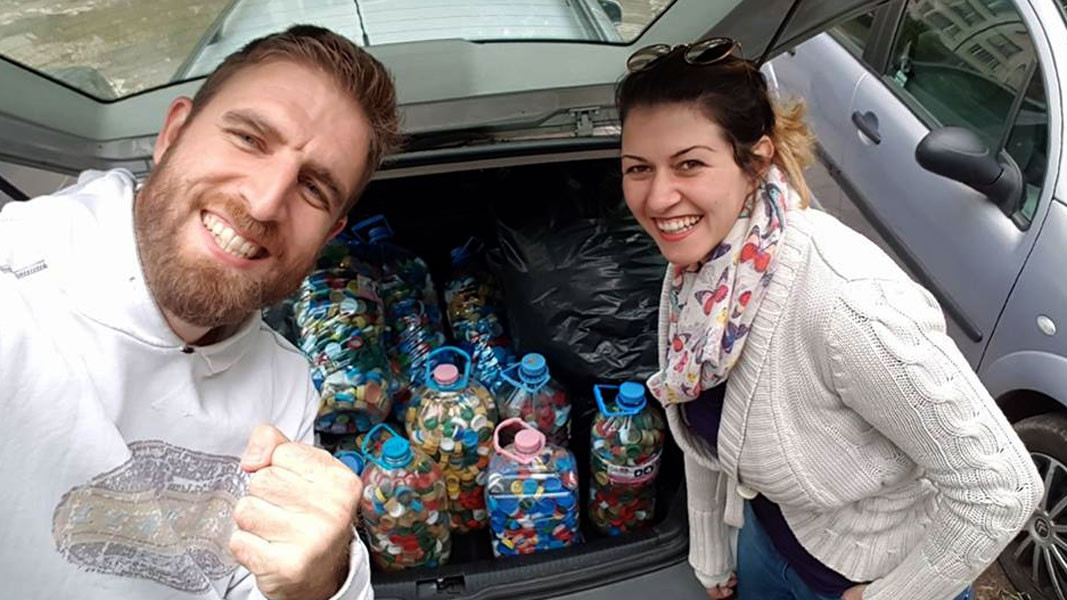
“The average price of the plastic material that these caps are made of – high-density polyethylene – is about 40 stotinki per kg, or 400 leva per tonne. We collect data from several hospitals to determine where to donate the other two of the eight purchased baby incubators”, Radkov says, and returns to the story of how it all started:
“The idea was to make a sports playground, but asked the question of how to use the collected money the response of purchasing baby incubators was the most dominant. We found out that one in three children who were in a baby incubator develops visual impairment and every tenth newborn in Bulgaria needs to be placed in a neonatal intensive care unit. The situation in hospitals in small municipalities is horrific – there is lack of specialized equipmentor the only available equipment dates back to the 1980s. Thus the motto of our campaign was born and it is "Caps for the future".
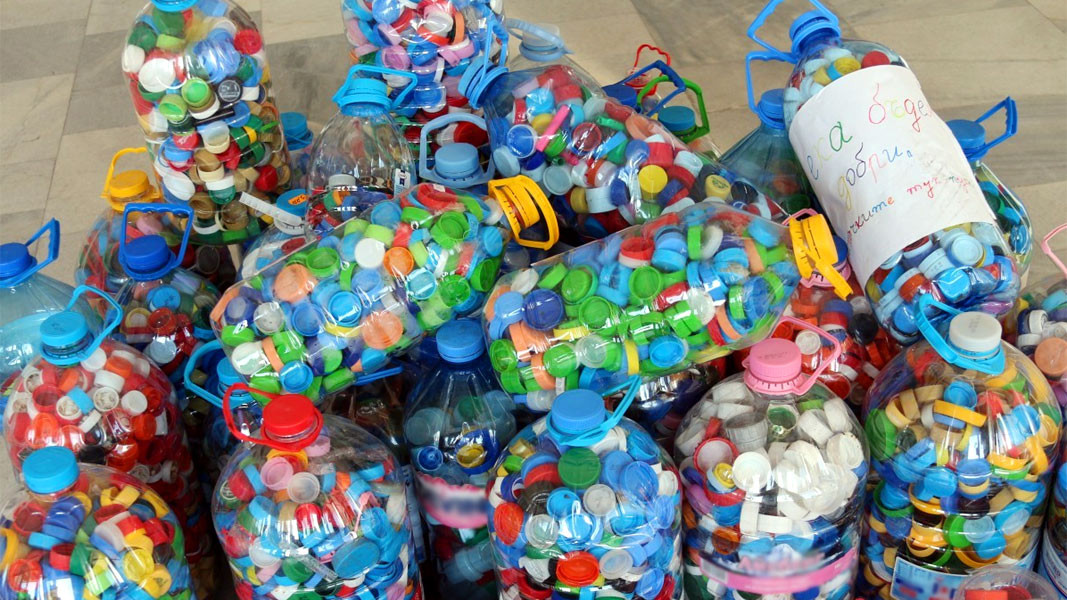
The charity campaign has a Facebook page with almost 60,000 followers, and the people who collect caps number thousands across Bulgaria. “The idea spreads from mouth to mouth, from one share to another, and the media outlets also help in promoting It”, says Lazar, and continues:
“The campaign takes care, on the one hand, of the environment, and on the other hand it helps premature babies, and on yet another hand – it educates people in the spirit of volunteering and changes public attitudes. Many people have written to us that they have begun collecting and disposing of garbage separately. Volunteering is something important and it needs to be nurtured and developed more in Bulgaria. Every developed civil society is driven by its more active citizens who dedicate part of their free time in order to make their environment a better place to live.”
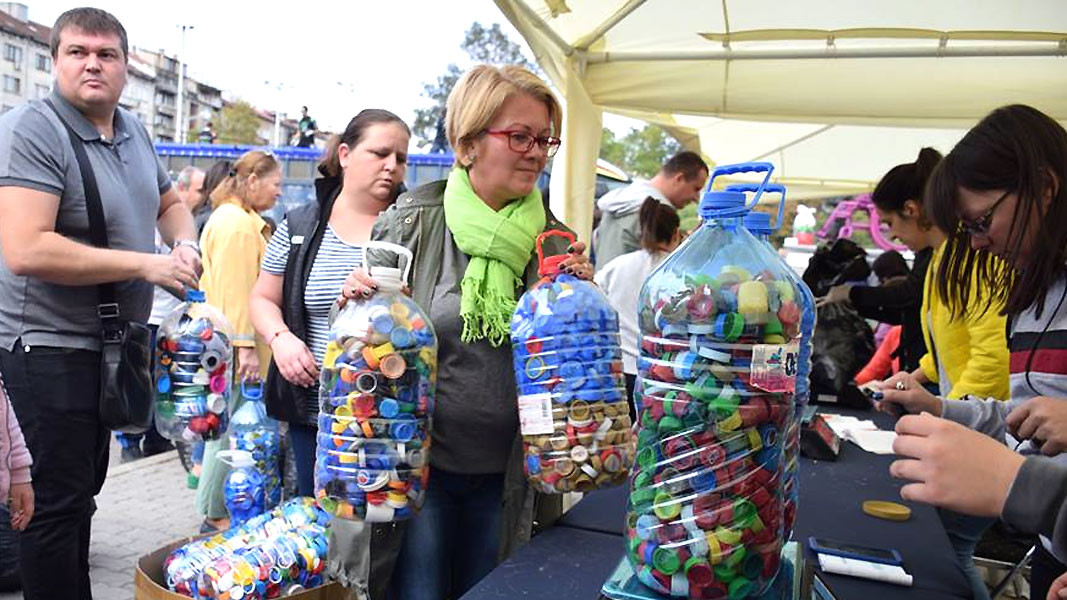
"Caps for the Future" campaign relies entirely on volunteers, on those “people who do their job every day, help some causes, and whose names remain unknown; people who are the reason to see small improvements happen step by step - not governments and politicians”, Radkov believes. He says the activity is completely transparent, with a full account of the funds received, including donations. They have already established working mechanisms of importing baby incubators of high European standards at preferential prices and warranty periods.
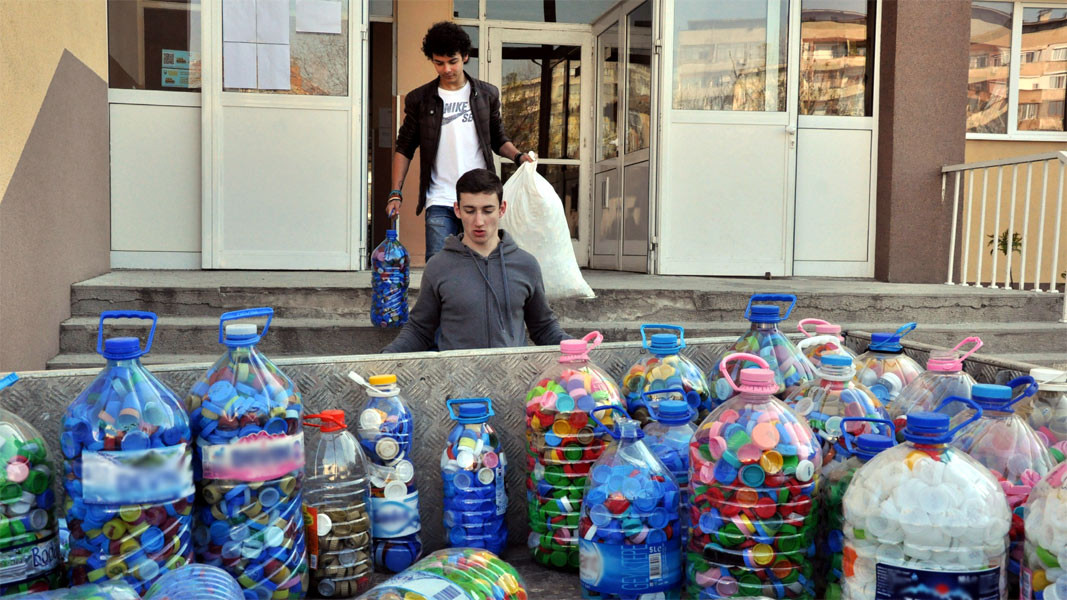
Radkov also explains the mechanism by which caps are exchanged in return for financial resources:
“Bulgaria has the capacity to recycle the plastic waste of half of the Balkans, even the entire Balkans, I could say. Only one plant has a capacity of 220,000 tonnes per year, and all plastic waste in Bulgaria accounts for 170,000 tonnes. We pass on the collected caps to a recycling plant, which processes the plastic into granules for future production. There are plastics that can be recycled 10 times.”
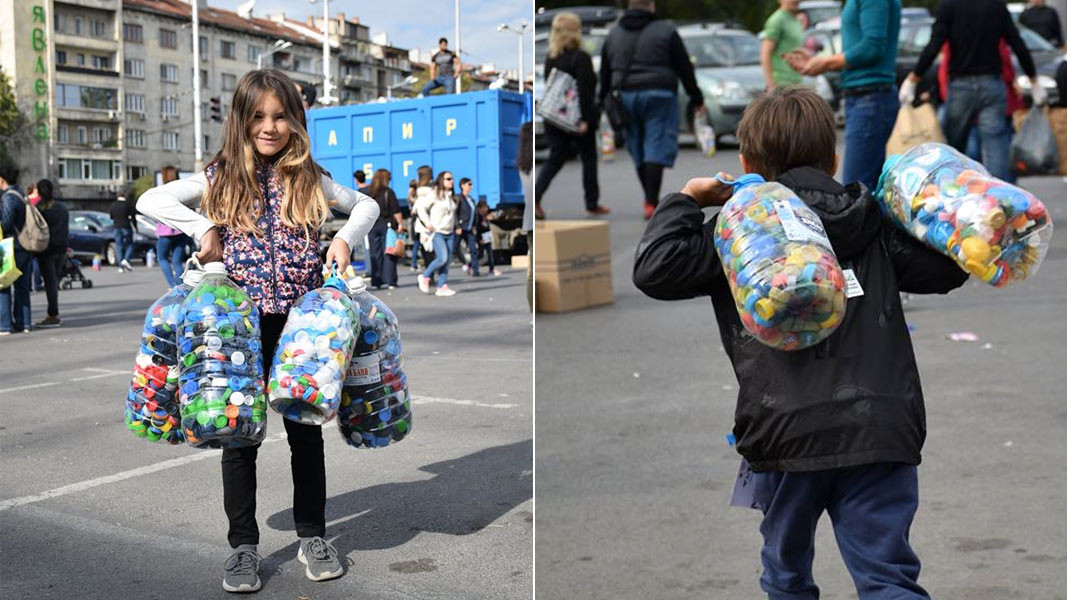
Nearly 85% of the followers of the initiative are women. Many kindergartens and schools collect caps. “These are the two main groups. We hope to have a long-term influence on children because they bring the new things into the family. We want to nurture in them a culture of volunteering and shape the idea that you have to preserve nature and leave the world a little better behind you. It is necessary to change the way of thinking of the Bulgarians, at least of the younger generation, because this is the way to change the future. If we fail in this, at least we will have cleaned some parts of Bulgaria and bought baby incubators for some hospitals," Lazar Radkov says in conclusion.
English Rossitsa Petcova
Photos: private library and BTABulgaria participates in the Global Money Week initiative for yet another year. Global Money Week is an annual global awareness-raising campaign to ensure that young people, from an early age, are financially aware, and are gradually acquiring the..
Bulgaria, as distant as a mirage, has become a beloved land for a man who has never set foot in this country. For nearly 50 years, Mr Jayanta Chakrabarti has been closely following everything that happens here and probably knows more about our history and..
The Republic of North Macedonia is in seven days of mourning. The town of Kočani, where a fire in a disco club took the lives of at least 59 people – mostly young people and children, aged 14 to 25 – is shrouded in silence today. "The..
Bulgaria has joined a multinational nomination for accession to the element "Pasture traditions", inscribed on the UNESCO List of Intangible Cultural..

+359 2 9336 661
